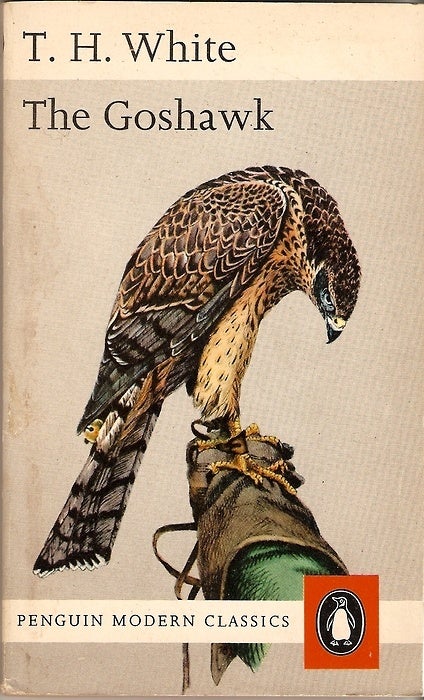The Goshawk, By TH White - book review: Avian classic finds its second wind
Weidenfeld & Nicolson, £12.99

H is most definitely for hawk in British publishing lexicon at present. After the spectacular success of Helen Macdonald’s memoir last year, many a rural literary festival bookstall was given a mini falconry section, and publishers showed some eagle eyes for an opportunity.
Bloomsbury acquired a book by Richard Hines, whose pet raptors inspired his brother Barry’s famous novel A Kestrel for a Knave (filmed as Kes), while T H White’s The Goshawk is now republished as part of WeidenFeld & Nicolson’s Modern Classics series. Of course The Goshawk, first published in 1951, is timely because Macdonald wrote so perceptively about it in H is for Hawk. Like White, she was “escaping to the wild” as she trained her bird Mabel, and in many ways she was guided by him – avoiding his mistakes, and sharing his attempt to sublimate the self in nature. For this edition, Macdonald provides a foreword.
“The Goshawk is a fable about selfhood and the exercise of power as much as it is a book about a man and a bird. You can read it as an investigation into the nature of freedom, of education, power, war, history, class, enslavement, the English landscape and the workings of the human heart… In our present age of terrible environmental destruction, it can be read most usefully as a book about humanity’s lamentable inability to see nature as anything other than a mirror of ourselves.”
White’s memoir describes his attempt to train a wild goshawk in the late 1930s. Unhappy, lonely, gay but unable to come out, he has left a teaching post to live a solitary life and seek personal redemption through mastering the bird. Unfortunately goshawks are notoriously difficult to train, and White tries to do it all from textbooks; the project ends badly for both man and hawk.
The writing, is in parts wonderfully life-affirming, but it is the stark desolation and nihilism that many readers most remember. “In the end,” he writes early on “one did not need European civilisation, did not need power, did not need most of one’s fellow men, who were saturated with most of these: finally, one would not need oneself.”
Few writers go so far without claiming to have found a consolation, and the bleakness is an important part of The Goshawk’s strange charm. It certainly resonates in 2015 when current international instability and conflicts can seem not dissimilar to those that drove White into reclusion; this is a good time to discover, or rediscover, the book, and the reissue, with its illustrated jacket faintly recalling the original, an attractive starting point.
Subscribe to Independent Premium to bookmark this article
Want to bookmark your favourite articles and stories to read or reference later? Start your Independent Premium subscription today.

Join our commenting forum
Join thought-provoking conversations, follow other Independent readers and see their replies